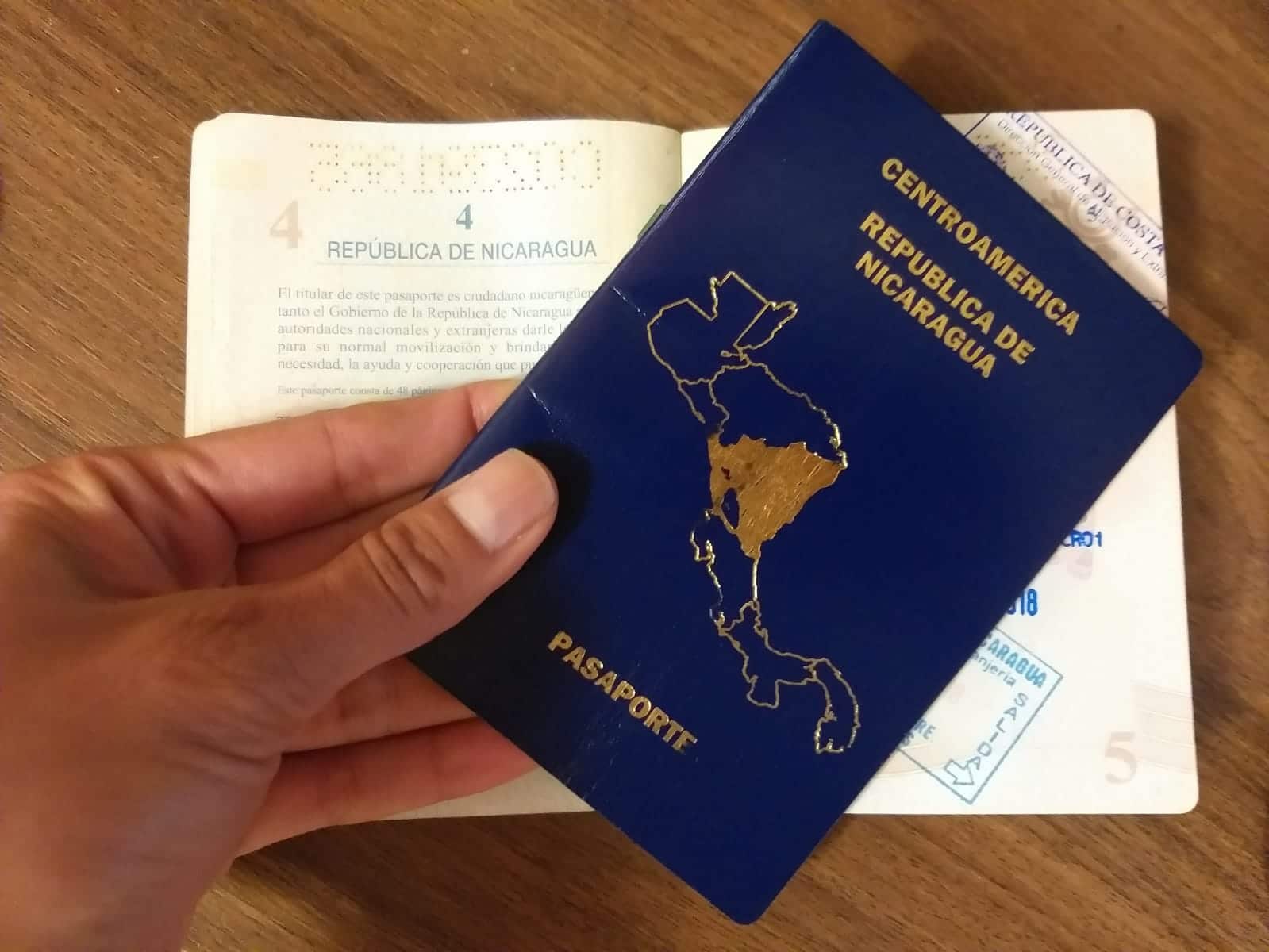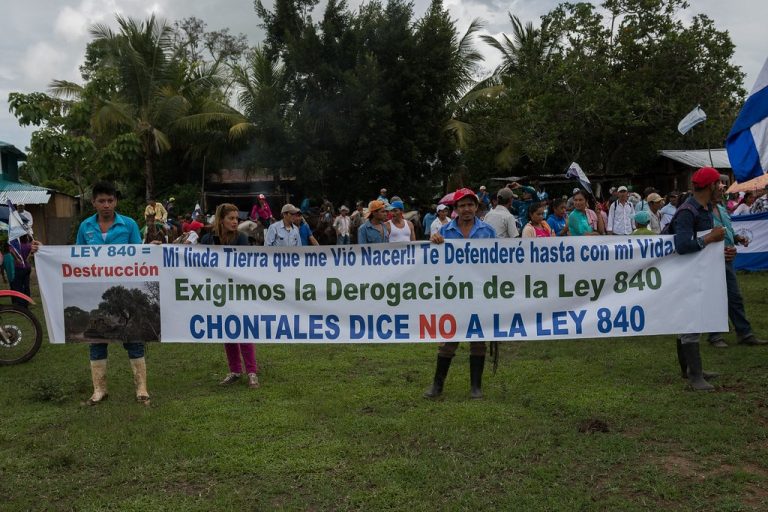4 de noviembre 2020

Nicaragua: Public Employees Hindered from Traveling to USA

PUBLICIDAD 1M
PUBLICIDAD 4D
PUBLICIDAD 5D
In the eyes of the Ortega-Murillo regime , any foreign ally has more rights than the Nicaraguan people

A group of farmers from the department of Chontales protest against Nicaragua's interoceanic canal in June 2017. Photo: Carlos Herrera | Confidencial
The deputies led by the Ortega-Murillo regime recently approved the infamous "Law for the Regulation of Foreign Agents" (Law 1 040), with which they intend to criminalize, suffocate and terrorize all oppositional expression in the country. Their main targets are the social movements, territorial leaderships, civil society organizations, independent press, and anyone who declares their rebellion against the government.
It is enough to compare the concession of the interoceanic canal (Law 840 and Framework Agreement of Concession - MCA), with the new Law 1040, to see the political perversion that directs the legislative steps of the dictatorship to criminalize the opposition, while at the same time, in the same parliament that they control, they turned the foreign canal partners into sultans.
As an example, Article 19 of Law 840 established that financial institutions granting financing for any project associated with the interoceanic canal would enjoy “the banking privileges established in the current banking legislation of Nicaragua and in any of its reforms, without having the need to register with the Superintendency of Banks of the Republic of Nicaragua or to obtain any other consent from any government entity ”.
Then, in clause 9.8 of the MCA, they also established that "neither the Government nor any other governmental entity shall prevent any subproject entity from remitting or receiving, inside or outside Nicaragua, the funds necessary for any subproject."
In other words, in the legal world created for the scam of the canal, no government entity can put limits or controls on any financial movement associated with the canal, a project that according to their calculations, would cost 50 billion dollars and would involve a large number of foreigners. Meanwhile, for the Nicaraguan people, the new law means that anyone can wake up tomorrow designated as a “foreign agent”, found guilty without the right to a fair trial, in front of a corrupt judicial power that today has more than 100 people kidnapped as political prisoners.
Finally, in clause 9.1 of the MCA, signed in 2013, they established that "the Government must make its best efforts to ensure laws or amendments to existing laws" to carry out the transactions contemplated and the rights conferred in the canal concession so that investors and contractors "provide services of a public nature in Nicaragua without registering in Nicaragua."
The other side of this coin of legal bipolarity is that with the recently approved Law 1040, all-natural or legal persons who receive funds from abroad are obliged to register with the Ministry of the Interior and send a monthly report of "documented, detailed and verifiable of expenses, payments, disbursements, contracts, and other activities ”(Article 10).
This new law is based on a discretionary criterion of MIGOB making it applicable to any person, with some convenient exceptions for the regime.
If a person fails to register, according to Article 15, they may impose fines, cancellation of legal entities, criminal sanctions, and intervention of funds and assets. That is to say that, at the end of 2020, the deputies legislated to prefabricate a “legal” foundation with which to do the same thing that they arbitrarily did in 2018, with the closure and confiscation of nine Nicaraguan NGOs and two media outlets. The difference is that now the threat is not only against NGOs and the press but against any person that the regime designates as a "foreign agent."
It is no small thing to remember that in 2014, the dictatorship reformed the Political Constitution to, among other misfortunes, elevate the canal project to constitutional rank and thus open it up so that it can only be reformed or repealed with 60% of the deputies (Article 102 Cn. ). And now it turns out that, in 2020, it again intends to reform the Constitution in order to sentence people to life imprisonment for committing “hate crimes”, the definition of which is open to discretionary interpretation according to the convenience of the ruling party.
Therefore, while the dictatorship redoubles its efforts to try to subject the Nicaraguan people to fascist control of our lives in our own country, seven years have already passed since it has handed over the sovereignty of the country to the shady interests of Wang Jing and his shell companies registered all over the world. This would undoubtedly merit an investigation by the Office of the Comptroller General of the Republic, were it not for the fact that only the buffoons of the dictatorship operate there, including comptrollers from the leadership of the PLC Party.
So now you know, when the Ministry of the Interior comes to your doors to threaten you for not submitting to the dictatorship, you tell them that you are working for the interoceanic canal project, and maybe that way they will let us live in peace. And remember to stand firm in your convictions, because as Gandhi wisely said "as soon as someone understands that obeying unjust laws is contrary to their dignity, no tyranny can dominate them."
This article has been translated by Ana Maria Sampson, a Communication Science student at the University of Amsterdam and member of our staff*
PUBLICIDAD 3M
Abogada, politóloga y activista nicaragüense con más de quince años de experiencia en movimientos sociales, organismos ambientalistas y de derechos humanos. Máster en Derecho Ambiental y en Estudios Políticos. Asesora legal ad honorem del Movimiento Campesino y autora investigaciones sobre las acciones y estrategias de lucha contra el megaproyecto del canal interoceánico en Nicaragua.
PUBLICIDAD 3D